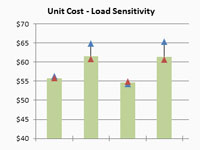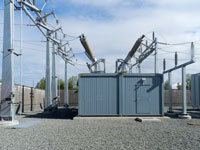Integrated Resource Planning (IRP)
EES Consulting is recognized throughout North America for its expertise in integrated resource planning. Integrated Resource Plans are developed as a tool for examining the economic, engineering, environmental and other attributes associated with adding new supply- and demand-side resource options to utilities’ resource portfolios.
EES Consulting’s basic approach identify issues associated with the existing system, identify options for resolving the issues identified and conduct a comparison of resource options in terms of effectiveness, economic costs and benefits and compatibility with existing load and resource projections. In addition, multi-attribute decision analysis and other decision methods have been implemented by EES Consulting to evaluate plans based on economic and non-economic criteria, while incorporating the value system of the stakeholders.
EES Consulting can assess current market conditions and future market trends through our extensive network of industry contacts and our access to the most recent transaction information. We actively participate in industry forums, conferences and roundtable discussions. EES Consulting staff has wide experience in presenting planning methodology and results to regulatory bodies and stakeholder groups.
Clark Public Utilities (CPU)

EES Consulting has assisted in strategic planning, engineering and rate setting activities for CPU for the past twenty years. As a result of IRP planning, EES Consulting has issued requests for proposals (RFPs) on Clark’s behalf for power generation projects, natural gas supplies and power purchases. EES Consulting assists CPU on an on-going basis in evaluating agreements and contracts to facilitate the forward purchases and sales of energy commodities, electric transmission, gas transportation and spot market purchases. EES Consulting works with CPU in actively pursuing resource alternatives that will stabilize its exposure to volatile markets.
Anchorage Municipal Power & Light (ML&P)

EES Consulting has prepared Integrated Resource Plans (IRP) for ML&P since 2002. The IRPs assist ML&P with evaluating capital spending in several utility functions including, covering transmission and distribution, generation, SCADA systems, use of dual fuels, and other related areas. To evaluate future generation, the IRP was developed as a tool for examining the economic and engineering attributes associated with various options. The results of the IRP identified resource technologies and size and provided a planning framework for moving forward with generation capital projects.
Lakeview Light & Power Company
Lakeview purchased a share of a wind project and retained EES Consulting to perform a financial impact analysis for options regarding use of the project output. The impact analysis evaluated two main options. Mainly, Lakeview could take its share of project generation to serve load versus, or Lakeview could re-market its share of the output to a 3rd party. The analysis included estimating potential retail rate impacts for each option. The analysis determined the impact of using project output to serve retail load on the utility’s annual revenue requirement. The availability and price of shaping services, which are required for intermittent resources such as wind, was included in the analysis. The possibility of using project output to meet only load growth was also explored. The potential impact of an applicable Renewable Portfolio Standard on the utility’s annual revenue requirement was also considered.
